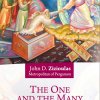Please join the Njegos Endowment for Serbian Language and Culture at Columbia University's East Central European Center and the Harriman Institute for a screening of the film Enclave (2015) followed by a Q&A with director Goran Radovanović.
Synopsis: A Christian boy, determined to create a proper community burial for his late grandfather, crosses enemy lines and makes friends among the Muslim majority in deeply divided, war-torn Kosovo. Focused on a tiny Serb community living in a UN-protected enclave in Muslim Kosovo, Enclavelooks at the legacy of ethnic cleansing and internecine conflict through the eyes of a small boy, Nenad. Every day Nenad is taken to school from his father’s farm in a KFOR armored car to study alone in a school with no other pupils. Like any other boy of his age, all Nenad wants are some friends his own age. Each day, through narrow observation slits in the military vehicle he sees two Albanian boys and a shepherd boy – who has lost his father in the war and hates Serbs.
The film won an audience award last June after a competition screening at the Moscow International Film Festival, and is Serbia’s nomination for best foreign-language Oscar.
(Source: HollywoodReporter)
For more information and to view a trailer, visit the film’s website here.
Director Goran Radovanović is writer and director of both feature and documentary films. Born in Belgrade in 1957, Radovanović studied Art History under Belgrade’s Faculty of Philosophy. His films have been shown at numerous film festivals worldwide. He is a guest professor at EICTV (International Film and Television School), San Antonio de los Banos, Cuba. Enclave is his second film.
Tuesday, March 1, 2016, 6:30 pm
Marshall D. Shulman Seminar Room (1219 IAB, 420 West 118th St.)





